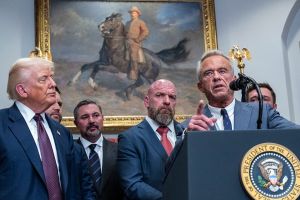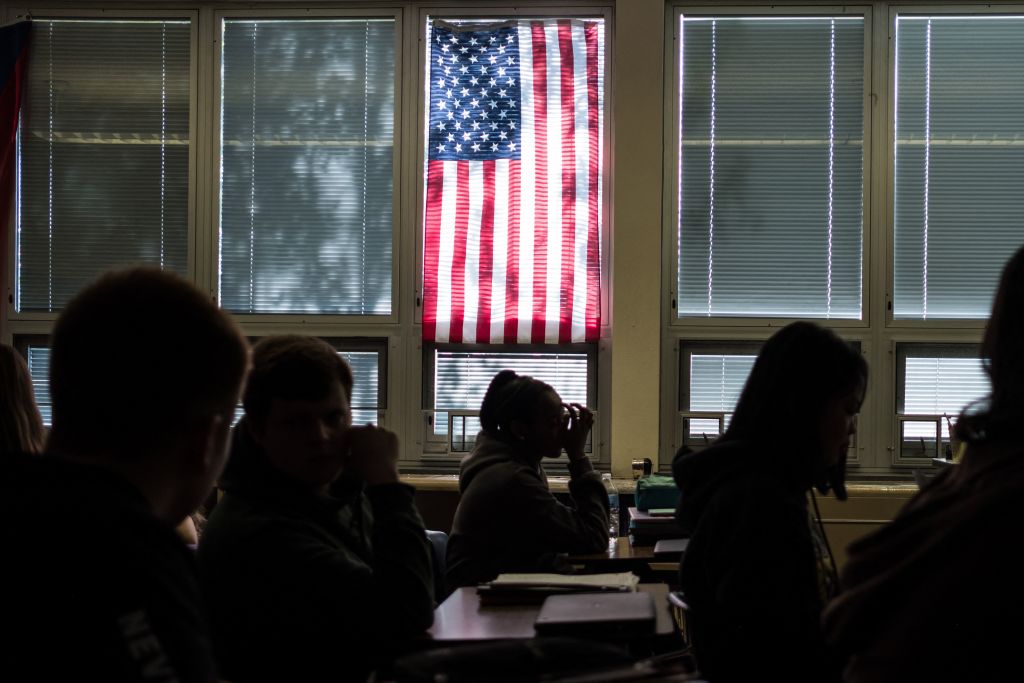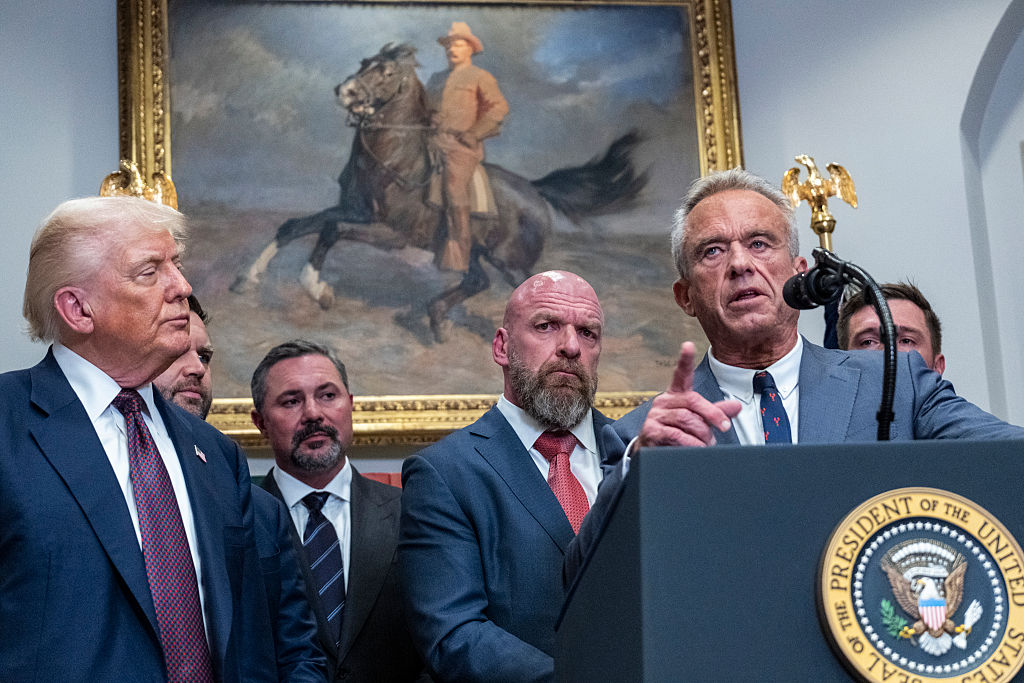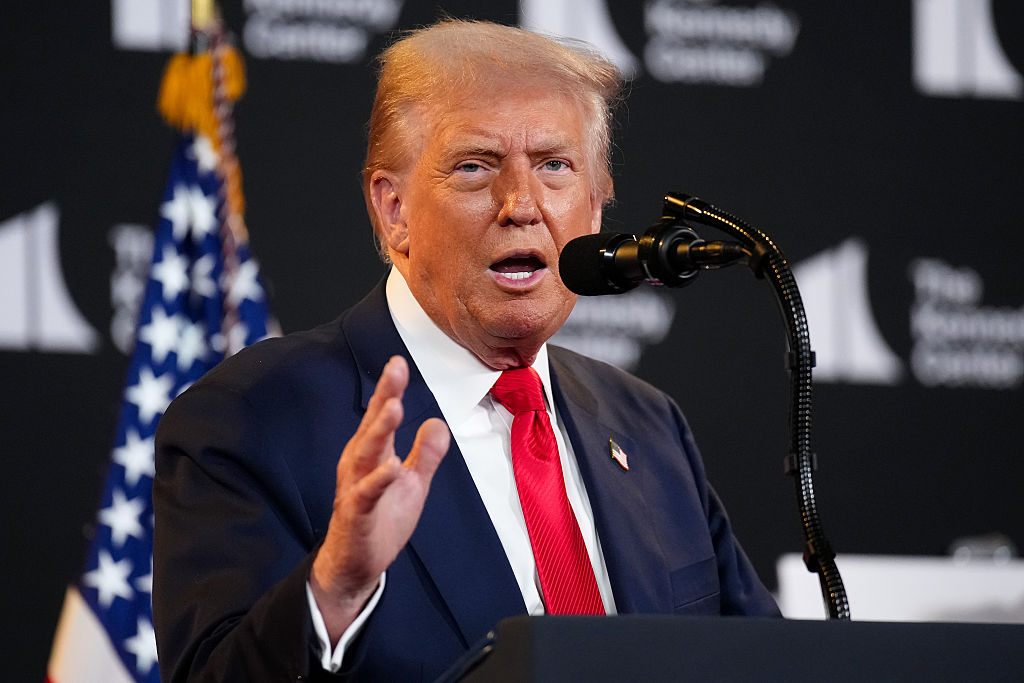Some cross-magazine skirmishing to contend with this week. Over at Commentary, Christine Rosen has written an essay in which she accuses the Atlantic of having a “nervous breakdown.” Per Rosen, one of America’s oldest and most trumpeted periodicals has turned into a ward of left-wing neurotics, quaking in fear over the pandemic, climate change, attractive color schemes, you name it. “The Higher Perspective of the Atlantic,” she writes, “is an elite species of panic.”
Call it the great Atlantic panic — it’s kind of like the Satanic panic except instead of devil worshippers there’s just David Frum muttering as he checks his WiFi router for evidence of Kremlin interference. Anyone who’s read the Atlantic lately knows Rosen is exactly right. The magazine’s coverage of the coronavirus in particular has suffered from what she calls a “combination of therapeutic elite self-indulgence and doomsaying,” a sense that we should be very afraid and that leftists deserve immense credit for enforcing as much.
There’s a familiar echo in all this. What Rosen diagnoses is one of the oldest and most reliable strands in American life: puritanism. The puritanical impulse is more often associated in modern times with chicken-after-church conservatives, but lately it’s migrated to the left, where the stocks and gallows teem round the clock with a seemingly limitless supply of the canceled. It’s progressives who go on witch hunts now, who behave like an elect of the virtuous, who seek to censor immoral content, who believe the apocalypse (or at least an uninhabitably warmer future) is ever-nigh. Mencken’s quip that puritanism is “the haunting fear that someone, somewhere, may be having a good time” has come home to roost in the same legacy press that once gave him a perch.
Read outlets like the Atlantic these days and you start to wonder whether we’re allowed to enjoy anything anymore. Road trips? “We should all be more afraid of driving.” Beers after work? “America has a drinking problem.” Hobbies? “The anxieties of capitalism are not confined to the workplace.” Having babies? “Pure environmental vandalism.” Rereading Harry Potter? “My childhood nostalgia can’t be more important than a trans person’s trauma or physical safety.” Halloween? “Filled with land mines of cultural appropriation and racist tropes.” Ornithology? Beware the “racist legacy” of birds.
What’s left except to have boring sex in carbon-neutral positions and mumble “that hasn’t aged well” in the general direction of Netflix shows? Hence why the pandemic has become a practically sacramental experience for the left. It’s taken this same puritanical, rules-obsessed, risk-averse lifestyle and exalted it to the level of social responsibility and scientific necessity. You’re not just eating free-range couscous in your John Oliver jammies now; you’re keeping people safe! Some of the new regulations even smack of historical puritanism, like covering up and social distancing from the unclean.
The elite left can sound at times like they want this to continue, like they’re willing the omicron variant to be worse than it is. Rosen quotes Atlantic writer Alexis Madrigal as sighing, “Things aren’t likely to change that much for quite some time,” before adding, “Maybe we’re in this space for another year or two or three.” Or forever, even, possibly. The Atlantic‘s Katherine Wu insists that “calling Omicron ‘mild’ is wishful thinking” and quotes a number of experts making gloomy noises.
The real problem here is that if omicron really is The Last Variant — as the seventeenth episode of the forthcoming John Cusack-starring miniseries is destined to be called — then the underpinning for so much of this panic vanishes. And that right there is the trouble with puritanism. Eventually the pretexts for pushing everyone around run out. That which is menacing the village never quite materializes, or at least it goes away even as the crackdowns don’t. All the while, the rules continue to tighten, the Hester Prynnes stack up — and everyone starts to ask why they’re putting up with this anyway.
So it went in colonial New England and so it will eventually go here. America runs not on fretting jeremiads pounded out into WordPress prompts, but on motion, waiters and truckers and librarians plying their trades. Those workers need to drive to their jobs, wind down after work with a drink, relax with books about adolescent wizards…you see how it all unravels. A mode of life founded on fear of life cannot be sustained. An elite cannot steward over a society that they’re separated from and terrified of.
Lately there’s been some debate as to what the political right should stand for. Some have even advocated that conservatives embrace a kind of puritanism of their own, that they become angrier and darker and more fear-mongering. Yet at a time of near-constant haranguing from the governing class, is that really what anyone wants? Conservatives right now are asking worthwhile questions: tradition or liberty? Communitarianism or individualism? Yet before any of that, how about they declare on the side of vibrancy, of color, of life?

























